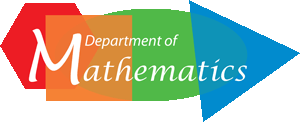Abstract
There is a growing availability of multiprecision arithmetic: floating
point arithmetic in multiple, possibly arbitrary, precisions.
Demand in applications includes for both low precision (deep learning and
climate modelling) and high precision (long-term simulations and solving
very ill conditioned problems). We discuss
- Half-precision arithmetic (fp16 and bfloat16): its characteristics,
availability, attractions, pitfalls, and rounding error analysis
implications.
- Quadruple precision arithmetic (fp128): the need for it in applications,
its cost, and how to exploit it.
As an example of the use of multiple precisions we discuss iterative
refinement for solving linear systems. We explain the benefits of
combining three different precisions of arithmetic (say, half, single, and
double) and show how a new form of preconditioned iterative refinement can
be used to solve very ill conditioned sparse linear systems to high
accuracy.



